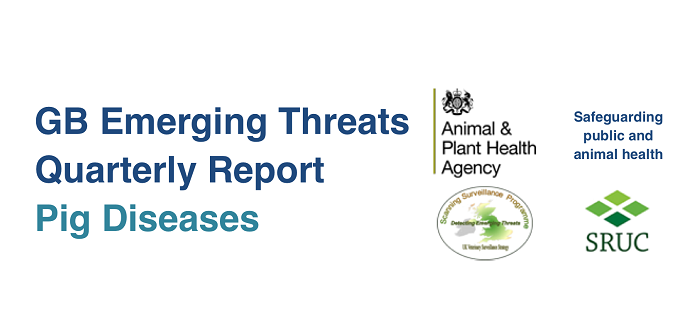Details of an acute salmonellosis outbreak, which initially resembled porcine epidemic diarrhoea (PED), but thankfully wasn’t, are included in the “unusual diagnosis” section of the latest Animal & Plant Health Agency (APHA) quarterly report on emerging disease threats.
The outbreak involved finishing pigs housed in two sheds of strawed pens, with scrape-through dunging passages. The pigs were being treated with tylosin for respiratory disease, an approach which was then changed to in-water amoxicillin due to a lack of response.
Within 36 hours of the antibiotic change, one of the sheds was affected with watery diarrhoea, with pigs in every pen becoming affected over two to three days. This resulted in high morbidity and a few deaths.
“The sudden onset, rapid spread, high morbidity and watery nature of the diarrhoea raised suspicion of porcine epidemic diarrhoea (PED),” reported APHA, adding that when the samples were “rapidly tested” for PED virus, however, the results were negative.
Further testing subsequently indicated a diagnosis of acute salmonellosis.
“It is likely that a simultaneous change of feed and use of amoxicillin, to which the Salmonella showed in vitro resistance, predisposed to the Salmonella outbreak, with the rapid spread being facilitated by the scrape-through system,” reported APHA. “Antibiotic treatment was withdrawn from the pigs and the clinical signs abated within a few days.
“This was an unusual and interesting case as salmonellosis is unusual in finishers and the older age of these pigs is likely to have been a relevant factor in the rapid recovery.”
The case occurred shortly before PED was made a notifiable disease in England on December 18, 2015.




